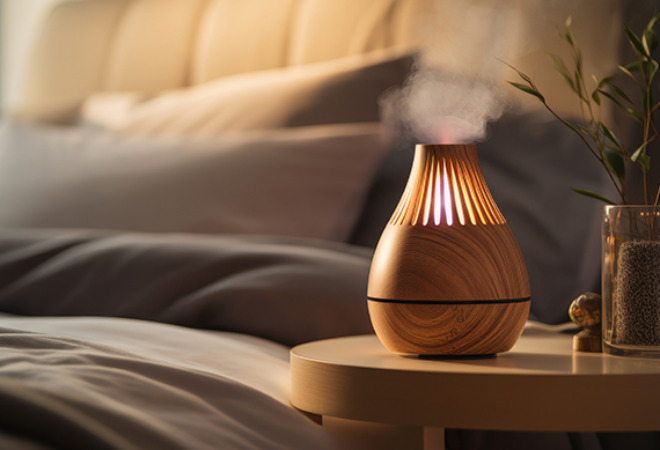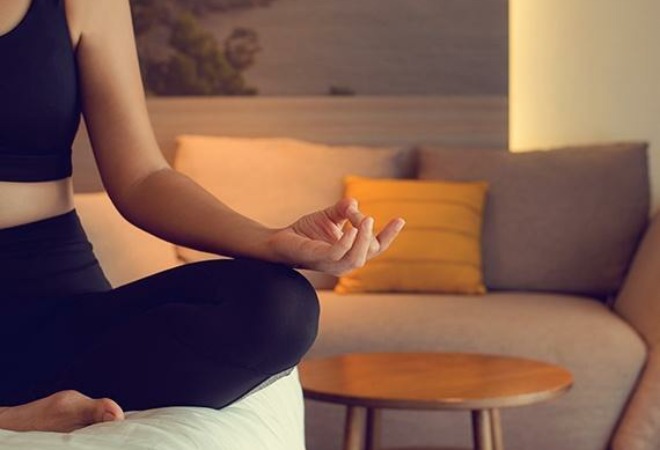We spoke with leading nutritionist and wellness expert Claire Turnbull to discover simple yet impactful ways to improve sleep quality. As Claire knows firsthand, a lack of quality sleep can impact everything from energy levels to food cravings and overall well-being. In this article, she shares her top five holistic sleep tips, designed to help you wake up feeling refreshed and ready to take on the day.
Getting enough quality sleep?
Getting enough quality sleep is the foundation of good health. If you want to feel better, be more productive and live longer, prioritising sleep is where it all begins.
I never really appreciated the true value of sleep until I went through the despair of sleep deprivation with my two boys when they were babies and toddlers. As I quickly learned the hard way, a lack of quality sleep makes it difficult to think clearly, increases cravings for sugary and salty foods, and leaves caffeine feeling like the only way to get through the day. It saps motivation to exercise, and overall, life just feels far harder than it needs to be.
It’s not just young children that interfere with sleep, though. Struggling to fall asleep, a racing mind, stress, or waking in the night and being unable to drift back off all contribute to feeling exhausted the next day.
If you’re fed up with waking up tired and ready to establish a better sleep routine
Here are five things to try:
Recommended treatments range from creating a healthy sleep environment, to lifestyle changes and seeking specialist support.
Stick to Consistent Sleep and Wake Times
Aim to go to bed and wake up at the same time every day – even at weekends. Your body thrives on routine, and when your sleep schedule is consistent, falling asleep and waking up becomes much easier, often without the need for an alarm. Adults typically need 7–9 hours of sleep each night, so factor in the time it takes you to drift off when setting your bedtime.
Start Your Sleep Routine in the Morning
A good night’s sleep actually begins the moment you wake up. Exposing your eyes to natural light as early as possible helps your brain register that it’s daytime, which in turn helps regulate your sleep-wake cycle. This ensures melatonin – the hormone that makes you feel sleepy – is released at the right time in the evening.
If you can, have your breakfast or first cup of tea outside, take an early walk, or simply step outdoors for a few minutes. If natural light exposure is limited, sitting by a bright window can help.
Be Mindful of Caffeine and Alcohol
Keep caffeinated drinks to the earlier part of the day and limit them to just a couple. Even if you feel like caffeine before bed doesn’t stop you falling asleep, it still affects sleep quality, making it more likely that you’ll wake up feeling tired.
Alcohol can have a similar effect. While it may help you fall asleep initially, it often leads to disrupted sleep later in the night. If you struggle with staying asleep, reducing alcohol intake may make a big difference.
Create a Sleep-Friendly Environment
Your bedroom should be dark, cool, and comfortable. In the evening, dim the lights in your home or use lamps instead of overhead lighting. As you’ve probably heard, screens from phones, TVs, and computers emit blue light, which can suppress melatonin and make it harder to fall asleep.
Dimming your screens, setting them to ‘night mode,’ and avoiding them for at least an hour before bed is a great habit to develop. It can be tough at first, but it’s worth it! Using an eye mask – ideally a blackout one – can help create complete darkness, and keeping your room cool (around 18°C) supports better sleep, as your body needs to lower its core temperature by about 1°C to drift off easily.
A comfortable mattress and pillow are also essential for good sleep.
Develop a Wind-Down Routine
If your mind races as soon as your head hits the pillow, creating a wind-down routine can be incredibly beneficial. Take 5–10 minutes before bed to jot down any thoughts or to-do lists in a notebook, this can help clear your mind and prevent overthinking when you’re trying to sleep.
As part of this routine, take a moment to reflect on 2–3 positive things that happened during the day or things you feel grateful for. Our brains naturally focus on negatives, so training yourself to notice the good can be a powerful habit for overall well-being.
Another simple but effective trick is taking a warm shower or bath before bed. Although it initially warms you up, the drop in body temperature when you step out helps signal to your body that it’s time for sleep.
I hope that helps and I wish you many restful nights ahead!
CREDIT
Claire Turnbull
Claire is a degree-qualified nutritionist, best-selling author, and speaker passionate about making healthy living easier. With over 18 years in the health and wellness industry, she has worked with Diabetes NZ, Healthy Food Guide, professional sports teams, and TV productions. A regular guest on Breakfast TV, Fair Go, Seven Sharp, and Newstalk ZB, Claire shares expert advice on wellbeing.
BSc (Hons) Dietetics UK, NZ Registered Nutritionist. Diploma Positive Psychology.
Managing Director of Mission Nutrition, Author, Speaker, Presenter.
For more tips and advice, visit www.claireturnbull.co.nz




